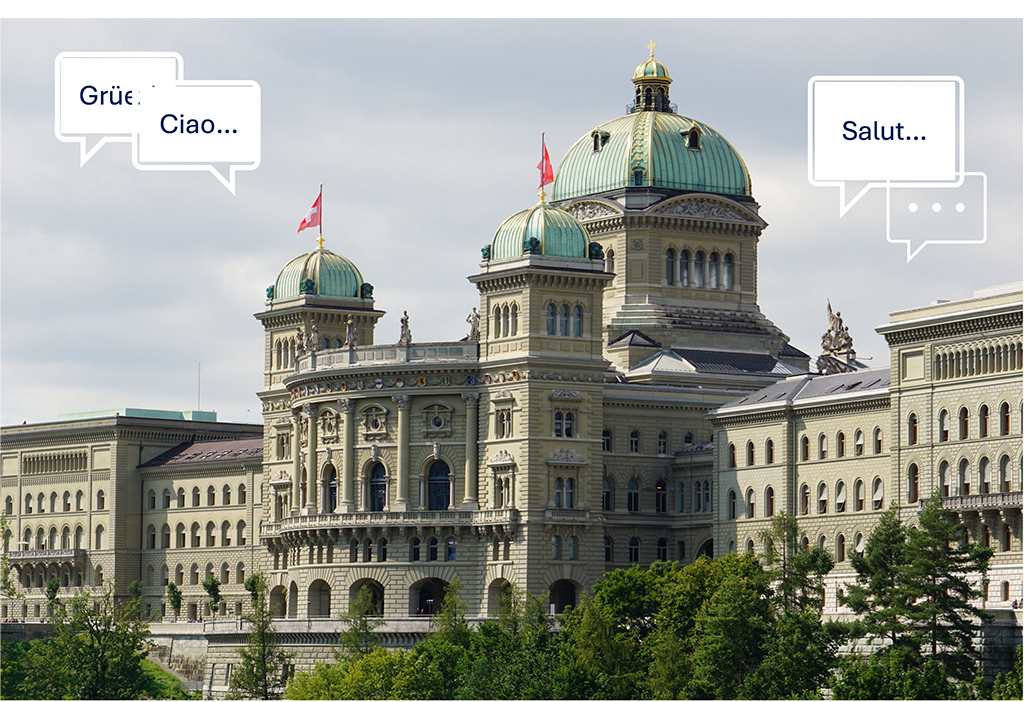
Qlaire: Enhance Quality Management with generative AI


Ivan-Daniel joined the SDSC Innovation team in September 2022, where he works as a Data Scientist. He obtained an MSc in Robotics (2022) from EPFL and holds a BSc in Microengineering (2019), also from EPFL. His main fields of interest are Machine Learning, Computer Vision, and animal locomotion modeling.


Roberto holds an M.Sc. and a Ph.D. in Particle Physics from the University of Torino, Italy. He has worked for several years in fundamental research as a senior fellow and data scientist at the CERN Experimental Physics division and on a research project supported by the Belgian National Fund for Scientific Research (FNRS). In 2018 he moved to EPFL to work on data mining and Machine Learning techniques for the built environment and renewable energies. He has started and led multiple collaborations with academic and industry partners in the energy domain. Roberto joined the SDSC in September 2021 as a Principal Data Scientist with the mission of accompanying industries, NGOs and international organizations through their data science journey.

Context
Bühler is a leading global provider of industrial processing technologies for food, grains, and advanced materials. The Bühler brand stands for high quality. Quality issues have the potential to rapidly erode trust with significant financial and reputational losses. Hence, quality has always been a top priority for Bühler. Bühler has recorded quality issues in the form of structured (tabular) and unstructured (textual) data over the years, creating a valuable source of knowledge and a potential goldmine of valuable feedback.
Accessing textual information is particularly challenging due to the high volume of records and the variety of languages, among other factors. Through the in-house tool called Qlaire, Bühler aims to enable its global quality teams to leverage recent generative AI technologies and access valuable insights at unprecedented speed and quality.
Objectives
Qlaire is an AI-powered insights engine for quality issues in manufacturing. Working together with the Swiss Data Science Center (SDSC), Bühler’s Quality & Compliance team wanted to implement advanced linguistic tools to help internal experts to rapidly and more effectively analyze issues contained in textual reports. To this end, Natural Language Processing (NLP) and Large Language Models (LLMs) were utilized.
Within Qlaire, a data pipeline processes the issue dataset by cleaning and enhancing it. It extracts key information from texts (e.g., machine names), automatically translates texts to English, and summarizes each issue into a concise text. Four tools were made available via an intuitive WebApp:
· Overview tool: to offer a quick glance at relevant information about an issue (summary, answers to predefined questions, etc.), speeding up expert decision-making.
· Insights tool: to compile common concerns (like the machine's frequent issues), helping experts identify problems for further investigation.
· Q&A tool: to answer experts' questions (citing relevant issues for explainability), aiding experts in their analyses.
· Similarity tool: to identify similar issues, which may unveil existing solutions.

Figure: The issues are stored in an enhanced database, which Qlaire uses to assist experts in analysis, saving time and money.
Benefits
Qlaire enables Bühler's quality experts to rapidly access knowledge from issues texts. This leads to faster resolution of issues, easier retrieval of existing solutions, more efficient identification of quality hotspots, and a deeper understanding of quality concerns. The result is dramatically improved quality management processes with real-time analysis, saving time and money and supporting Bühler's reputation in quality excellence.
Collaboration
This project highlights the continued fruitful partnership between Bühler and the Swiss Data Science Center since 2018. In a previous collaboration a widely adopted solution, MontBlanc, was developed together to reduce carbon emissions associated with the high energy demand of malting processes. This product is currently available to Bühler’s customers. As a follow-up to this impactful project, now Qlaire enables the quality teams at Bühler to incorporate text analytics into their quality management processes.
Notes
Special thanks go to Matthias GRAEBER, Head of Data Science, and Juergen AUGE, Head of Quality & Compliance at Bühler, for their trust, support, and guidance throughout the project. The front-end Web application was built with the support of Arcanite.
Links
· Bühler Group Website
· Montblanc Case Study
· Montblanc Digital Service
· Arcanite Website
Image Reference:
Cover image: Many digital journeys start with an analog mapping exercise (image source: Daria Nepriakhina, Unsplash).
More case studies

Smart Waste Collection with AI-Empowered Planning

Enhancing Parliamentary Services with Generative AI

An artificial intelligence-based system for augmented cell & gene therapies
Contact us
Let’s talk Data Science
Do you need our services or expertise?
Contact us for your next Data Science project!
